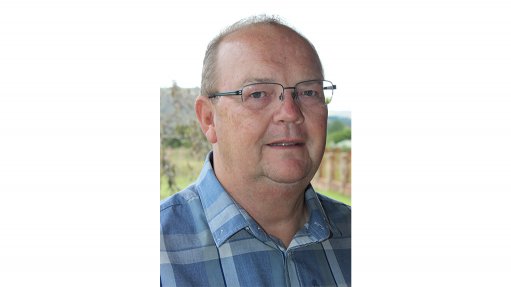
NICO PIENAAR Smaller miners feel the brunt of such corruption more quickly, as they have limited resources and are often less resilient than larger mines
It is going to take a collective effort and we need to stand behind initiatives like this with all our might to save the industry, spare jobs and rescue the economy.” – Nico Pienaar Surface mining industry association the Aggregate and Sand Producers Association of Southern Africa (Aspasa) has thrown its full weight behind mining industry employers’ organisation the Minerals Council South Africa’s call for visible leadership in the eradication of corruption.
Representing mainly smaller surface mines, the association accounts for a large portion of the overall number of mines in the country and has a large and well-established member base.
The association is also an active participant in Minerals Council matters, and actively engages in all levels of government and labour bodies.
Aspasa director Nico Pienaar says the industry and the economy are being hamstrung by corruption and illegal mining that threaten the existence of the formal mining industry.
He adds that smaller miners feel the brunt of such corruption more quickly, as they have limited resources and are often less resilient than larger mines.
He also notes the Minerals Council’s support for President Cyril Ramaphosa’s zero tolerance approach, and its subsequent call for the President and law enforcement authorities to act urgently against those in government, as well as those businesses and other citizens who have looted public funds – including funds intended to ease the impact of Covid-19.
“We stand in solidarity with this initiative and call upon our members, as well as the larger mining community, to stand together and report even seemingly insignificant corruption by officials, as well as businesses, and to discuss suspicions of corruption with industry bodies for further investigation,” Pienaar adds.
He adds that contractors can also do their part by dealing with only legal mines and, similarly, buyers should always ensure that they are dealing with licensed producers.
Pienaar points out that corrupt practices “breed larger-scale corruption and need to be stopped at its roots” to reinforce morality in the industry.
“It is going to take a collective effort and we need to stand behind initiatives like this with all our might to save the industry, spare jobs and rescue the economy.”
Pienaar concludes that Aspasa has zero tolerance for corruption and will support members who have been victims of corruption, as well as the prosecution of any who are corrupt.